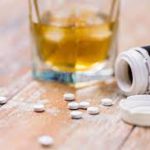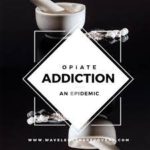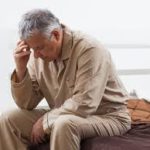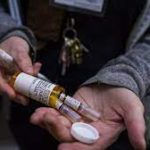I have not posted anything on this blog for over three months. I sometimes feel I’ve said all I have to say about addiction, and now is one of those times. But new ideas come in clusters. It’s hard to know whether and when a new cluster is about to pop up. Maybe it’s now. Anyway, if any of you were concerned, my family and I are fine. Radio silence doesn’t mean I’ve disappeared.
For now I’ve got a couple of guest posts ready to go, and I think they’ll be of interest to you. The first is from our old friend Shaun Shelly, whose March 6th post stirred a fair amount of controversy. Here’s Part 2. Get ready for more controversy — and directions for how to clear the air.
…By Shaun Shelly…
Previously I argued that “drugs” are essentially a construct that defies any straightforward, objective designation or referent. Some felt that my point was mere semantics and that the drugs I referred to were indeed harmful. To minimize confusion, let me clarify that I was pointing to drugs that are often (not always) illicit or unregulated and thought to be addictive. I quoted Derrida who said “the concept of drugs is not a scientific concept, but is rather instituted on the basis of moral or political evaluations: it carries in itself both norm and prohibition…it is a decree, a buzzword.” Here I’ll use the term drugs in italics to refer to this hard-to-define category.
So, onward: If there is no empirical definition of drugs, what are we hoping to achieve when treating “drug addiction”? In this post, I argue that a value-neutral and rational understanding of drugs would save lives and change our response to the use of drugs for the better.
 The opioid crisis in the USA gives an excellent example of how the impact of a moral and disease-laden framing of opioids plays out. The combination of an economic crisis, the loss of jobs, increasing inequity, the housing crisis, the increased cost of education and little chance for resolution made people vulnerable to anything that gave them some relief from the pain of their existence, lack of hope and sense of impending failure.
The opioid crisis in the USA gives an excellent example of how the impact of a moral and disease-laden framing of opioids plays out. The combination of an economic crisis, the loss of jobs, increasing inequity, the housing crisis, the increased cost of education and little chance for resolution made people vulnerable to anything that gave them some relief from the pain of their existence, lack of hope and sense of impending failure.
 Widespread emotional and physical pain combined with direct end-user advertising of opioids and increased prescribing made the rise in opioid use predictable. Opioids filled the gap, as did Trump. Another critical contributing factor was the message that opioids are highly addictive. People believed that using an opioid would make you addicted and, once addicted, your life would
Widespread emotional and physical pain combined with direct end-user advertising of opioids and increased prescribing made the rise in opioid use predictable. Opioids filled the gap, as did Trump. Another critical contributing factor was the message that opioids are highly addictive. People believed that using an opioid would make you addicted and, once addicted, your life would  spiral out of control. The narrative became a self-fulfilling prophecy. People prescribed opioids started overdosing, by exceeding the correct dose or mixing their opioids with other medications and/or alcohol. Then heroin began to be contaminated with fentanyl. Fentanyl is many times stronger than heroin and was often undetected. People who used heroin began to die from drug poisoning due to fentanyl contamination.
spiral out of control. The narrative became a self-fulfilling prophecy. People prescribed opioids started overdosing, by exceeding the correct dose or mixing their opioids with other medications and/or alcohol. Then heroin began to be contaminated with fentanyl. Fentanyl is many times stronger than heroin and was often undetected. People who used heroin began to die from drug poisoning due to fentanyl contamination.
 The response, informed by the prohibitionist narrative, was predictable: the aim was to eradicate the drug, cure the disease, get people ‘clean’. The CDC placed restrictions on prescribing opioids. Doctors cut people off from their essential pain medications, and the DEA increased inspections of doctors prescribing opioids.
The response, informed by the prohibitionist narrative, was predictable: the aim was to eradicate the drug, cure the disease, get people ‘clean’. The CDC placed restrictions on prescribing opioids. Doctors cut people off from their essential pain medications, and the DEA increased inspections of doctors prescribing opioids.  Information about the addictiveness of opioids and the consequences of the disease of addiction dominated the headlines. Predictably, people began to access pharmaceutical drugs from the street. When those ran out, they did the previously unthinkable and started to use heroin. When cut off from opioids, some pain patients could not live with unbearable pain and committed suicide.
Information about the addictiveness of opioids and the consequences of the disease of addiction dominated the headlines. Predictably, people began to access pharmaceutical drugs from the street. When those ran out, they did the previously unthinkable and started to use heroin. When cut off from opioids, some pain patients could not live with unbearable pain and committed suicide.
 If the response had been value-neutral, we would have had a very different outcome. Many deaths would have been prevented. The rational response, in a world without the rhetoric of drugs would have been:
If the response had been value-neutral, we would have had a very different outcome. Many deaths would have been prevented. The rational response, in a world without the rhetoric of drugs would have been:
With the increase in prescribing and dependence, the CDC would:
- Not reduce the supply of regulated opioids.
- Ensure additional training of physicians.
- Ban all direct-to-consumer advertising.
- Ensure the marketing of drugs to doctors was not incentivised but based on data.
- Ensure that people dependent on opioids have an uninterrupted supply of regulated opioids so they would not have to switch to unregulated opioids.
With the increase in fentanyl-related poisonings, policy-makers would:
- Lower the threshold for agonist-prescribing services (methadone programs).
- Ensure that people dependent on heroin (diamorphine) have a regulated, unadulterated supply of diamorphine via community services or retailers.
- Make fentanyl tests widely available to all drug sellers and consumers.
- Analyse heroin samples contaminated with fentanyl and identify the source.
- To ensure immediate broad access to naloxone.
- To promote the passage of federal Good Samaritan laws.
- To distribute factual information and data.
 To access networks of people who use drugs, social media and first-responder reports to map contaminated drugs and distribute information about risk areas.
To access networks of people who use drugs, social media and first-responder reports to map contaminated drugs and distribute information about risk areas.- To divert funding used for the DEA and supply reduction to community-based services and support for all community members.
- To decriminalise the use and possession of drugs for personal use.
Tragically, the ‘opioid crisis’ has not motivated policy-makers to take logical measures to prevent further death and suffering. By thinking that drugs like opioids are ‘bad drugs’ and must be prohibited, rational options are beyond consideration. In a rational world, we would realise that the opioid crisis, most addictions and the negative consequences of drugs are not caused by the drugs themselves. Instead, they are the symptoms of our society’s misguided beliefs and policies.
Trying to stop drug use and eradicate drugs are futile pursuits. Instead, we must modify or eliminate the policies, practices and beliefs that cause harm and suffering for certain people who use certain drugs. I long for a world where people can, most of the time, make informed decisions about the what, where, when and how of using or not using drugs, especially drugs, without the threat of arrest, pathologisation, medical maltreatment and social or economic isolation.
 Informed by unparalleled neuroscientific insight and written with his usual flare, Marc Lewis’s The Biology of Desire effectively refutes the medical view of addiction as a brain disease. A bracing and informative corrective to the muddle that now characterizes public and professional discourse on this topic.” —Gabor Maté, M.D., author of In The Realm of Hungry Ghosts: Close Encounters With Addiction
Informed by unparalleled neuroscientific insight and written with his usual flare, Marc Lewis’s The Biology of Desire effectively refutes the medical view of addiction as a brain disease. A bracing and informative corrective to the muddle that now characterizes public and professional discourse on this topic.” —Gabor Maté, M.D., author of In The Realm of Hungry Ghosts: Close Encounters With Addiction
I’m still fighting to redefine my relationship with alcohol- a drug available almost all the time. I’m a highly educated being, alert to all the reasons why I might choose to drink over all the positive occupations I think I might like to do during the day – then come home to find I take the drug and do nothing on the activities I was convinced I would like to do instead. I know this is in no way aligned with ice, meth, crack or opioids – on a realistic, and outcome, level. I also smoke tobacco. Yet the socio-mental occupations of our day to day, the poverty, the boredom and the existential flight are all one.
When are you going to cut through and find an explanation and purpose enough to over-ride this base performance and wallowing? I’m doing the best that I can – I hold down a job and appear to be a ‘normal, workaday stiff. I fear this is the fundamental issue. until we can exist with meaning and purpose, so many of us will try to fly to Neptune. Is an entire re-evaluation of society necessary? And drug use return to shamanistic rituals of meaning? Thus, be prescribed and condoned, so as to bring back knowledge personally and for the Tribe? I think an individualistic attitude will only push us all to addiction because our individual purpose on the planet has been rendered redundant. Can you promote a global turnaround against capitalism and alienation? (As Marx described, and from which we’ve been cut off since – due to capitalistic pursuit and blind following of material buyingness). Can we get free through change of purpose?
Megan, Bruce Alexander would agree with you. The spread of free-market hyper-capitalism and the false belief in an individualistic meritocracy lead to increased psychosocial dislocation. Some find that their drug use helps resolve the feeling of hopelessness and despair.
And yes, we do need a total re-evaluation of society. We are in a mess, and it will only get worse.
Agree. I think hyper-capitalism is also behind the obesity epidemic, which can be viewed as an epidemic of addiction to sugar, another “drug” which is being pushed by large corporations. I was addicted to sugar, but I think I’ve finally managed to kick the habit, after years of trying different eating plans. (Apart from that, I don’t have personal experience of addiction, unless you count tobacco, coffee, or narcissistic men.)
I have always thought that although not a page-turner in the traditional sense, The Globalization of Addiction is one of the most important books out there on addiction. Along those lines, the most pervading addictions in America seem to be sugar and technology. These aren’t addictions sexy enough to make movies about, but they are deeply entrenched. And far from being touted as problematic addictions, they are supported by powerful financial markets, lobbies, and normalized by social narratives.
Eric, perhaps this system replaces religion as a means of controlling people?
Yes, my more cynical sides make the assumption that keeping people sedated through low-level addictive attachments, keeps them from realizing that they have been conditioned into being mindless consumers. But I also think it could be best described as a way that people temper the underlying discomfort of living within the unnatural patterns of the modern world. Either way, it does present as a mass numbing.
I agree that Bruce’s book is right up there in terms of academic books- it is dense and very well referenced and reasoned. Other academic books that I recommend are Zinberg’s Drug Set and Setting and Siegel’s Intoxication.
I had a last minute best company and he went over and above to assist me and ensure the whole lot was finished on time.
This is a tangential comment, but I was interested to see that you [Marc Lewis] provided a blurb for Jan Winhall’s new book Treating Trauma and Addiction with the Felt Sense Polyvagal Model. I watched Winhall’s USABP presentation and was blown away by the theory that addicts use to help move themselves from one state to another … but due to the nature of addiction (and the underlying challenges), addicts never get to a ‘safe’ state … they just bounce between (more or less) fight/flight and freeze.
I’ve been sober (alcohol) for 30 months and have been really working on recovery, including my spiritual journey. I’ve been frustrated by a persistent inability to just sit and be … to not have to distract myself with something else in my life (whether it’s TV, social media, or if really stressed, sugar). This has really made my prayer life a challenge.
I spent most of the last week or so watching all of the interviews Gabor Mate did as part of SAND’s launch of their Wisdom of Trauma documentary and the interviews in particular with Stephen Porges and Peter Levine were “a ha’s” for me. And from there, I started checking out Deb Dana’s use of polyvagal theory in clinical practice.
As a result, I am going to give Porges’ Safe and Sound Protocol a try in the next couple of weeks to see the impact of that. And later today, I’m checking out Dana’s “Befriend Your Nervous System” workshop.
Anyways, this is just a bit of a tangent to the post, but I think it’s tangentially related. Addressing nervous system dysregulation is not a solution to systemic problems or policies. But for me, it explains a lot about the difference between sobriety and recovery. And it points to the value of both a whole body approach as well as the critical importance of community.
Not sure if this is a “new cluster … about to pop up” but it’s definitely something I’m pretty jazzed about.
Hi MaryBe. Thanks for your input. Shaun definitely emphasizes societal obstacles facing people who use drugs, while I focus on the psychological and physiological changes that accompany addiction, as well as the psychological precursors. Shaun educates me about societal issues, and that’s important, but I can’t forget about what goes on in our minds and brains.
That said, yes, I think Porges’ delineation of nervous-system states is very useful, and Jan Winhall’s approach adds additional layers to understanding and treatment methods. Indeed, for many of us, a high state of arousal, viz sympathetic nervous system activation, stem from the stressful events that give rise to addiction and the additional stresses that derive from the addiction itself.
My own view is that these states are highly context-specific and individually distinct, but I can see how general theoretical models of trauma help to fill in the blanks in our understanding. I hope this approach helps you learn to “just sit and be,” as this can certainly be a challenge for those of us who’ve had longstanding addiction issues.
Thanks for this thoughtful post. My reaction, when I see people who are misusing, is “what’s missing from their lives?” Capitalist AND authoritarian regimes don’t value humans as sentient beings (nor animals, nor nature), simply our value as consumers and producers and nature’s resources to be stripped out and sold to the highest bidder.
If we’re vulnerable: genetic illnesses, or with chronic conditions which limit our ability to work, too many are just tossed on the scrap heap and left to rot.
Johann Hari’s book “Chasing the Scream” was a real eye-opener for me. Our instincts to seek soothing and other worlds are natural, because our society is so unnatural. Most of all, so many of us are deeply lonely. When we’re born, we’re innately compassionate: society does its hardest to rub that out. What a tragedy 🙁
I’m in my 7th year of discovery (not recovery!) from drinking too much. With patience, I’ve learnt to sit with deep discomfort and ask it questions. Our anger, fear, shame and guilt has much to teach us, most of all that our paradigm is one of Scapegoating, rather than looking at our own fallibilities and healing them. Patience is key.
My younger brother Eric was a heroin user from 18, later on methadone (registered addict.) Natural reactions to trauma. He had good years and mental health when he lived with someone who loved him unconditionally. He took his life in 2009 after his dear friend, Stan, had died suddenly 5 months earlier. In his ‘junkie’ years (as some would call it), he visited many people in hospital whose families had given up on them. He was, undoubtedly, a good man. Good is not about success…..
We need compassionate responses to all of this. It’s more likely to begin in Europe, or other continents than the US, because we’re allowed to question more deeply. Keep questioning, Shaun!
Thanks, I like the ‘discovery’ term.
I love the term ‘discovery’! If you don’t mind, I will adopt that in my writings about drug use and addiction.
I have Johann Hari’s book sitting in my pile of books to read. For those who may be new to him, his TED talk is worth a watch if you want a very quick summation of his thinking.
Thank you for sharing your story about your brother Eric. I’m so sorry it did not end well for him.
Hi Christopher, thanks for your comment and please do use discovery!
When we were little kids, before conditioning got to us, Discovery and Curiosity were our daytime friends and our night-time allies (dreams.)
I dreamt of Eric a year after he died, and he was so much happier and at peace. I’m writing a book about him, for all others affected by addiction. We can and do recover, although society does its best to label us. Every human being is beyond a label, that’s what I know and practise!
Community heals – it always does!
I’m a lifetime member of a great community – see link below. 5,000 strong and growing bigger month by month! Free too, btw.
Thank you, Annette. “Good is not about success.” And “discovery”. Thank you.
i think i can relate to most of this—both the OP and the comments—its the kind of thing i’ve said and written. but these views are not popular in my area.
part of this i was actually doing theoretical pharmacology research—supposedly finding drug cures.
i just viewed it as a kind of science people liked doing and got pay as well. i liked some but not all of the science but felt it had little to with health or substance abuse issues—it was at best a band aid.
it was better to invent band aids than need to use them–or study guinea pigs than be one. .
i increasingly developed alcohol drug use issues when i was in these jobs i disliked, often had bad working conditions, and was surrounded by people some of whom also promoted drinking/drugs as part of that ‘healthy fulfilled lifestyle’–eg you get a paycheck and a community.
————————-
actually especially alcohol—cheap and easy to get — i started using just to sort of plan my escape from that world. chill out and make a plan. . it didn’t work—just led to another rabbit hole.
—————–
i’d also add that since people noticed i wasn’t ‘thriving and enthusiastic’ and started noticing the alcohol, they suggested aa/therapy.
the few attempts i made in that direction yiou hear mostly ‘there is no better world’—apart from aa./therapy to help you keep your job.
‘we want you here, and help you to stay’.
‘join our religion, cult, sports team, come shopping with us, and forget about music, nature , weird scientific theories noone can understand, social problems, etc.’
‘medtate’. and go back to work and then we’ll watch tv, eat to obesity, and join a weight loss/fitness club for 200$/month to cure the disease of obesity’.
fitness clubs support the economy and also you never get rained on.
some therapists did say that excercize, and even music and studying were good habits, but they did therapy in their office for 100$/hr.
eg they can motivate me to take a walk by telling me how messed up i am or talking about my sex life or lack therof.
send you straight into depression.
——————————–
the standard views was these problems are genetic/biochemical/bad attitudes.
even if they may say environment or trauma may have played a role, they add this is because people with bad genes/biochemistry/attitudes tend to gravitate towards bad environments and trauma. ‘you brought it on yourself’.
mindfulness / meditation seems to be popular with these people. ‘don’t get upset about things you can’t control; just keep to your business and stay happy’.
eg they give examples of themselves —
‘i meditate, and hop in my car each day and go to work and stay on schedule;
the fact that i ran someone over on the way to work doesn’t bother me.
its beyond my control—no use crying over spilled milk.
i have vacation plans to make.’
—–
since i was into ‘unpopular opinions, science, music, and lifestyles’ —unless you are making drug cures, your science is typically unpopular— people were happy to see me fail at these, and also happy to assist in these—- tell you all your ideas are nonsense garbage.
there are no support groups around here who view therapy as substituting good actions for bad ones—-except if its therapy, aa, religion, sports, mindlessness etc.
——- my website given is mostly a joke –and facebook.com/ishi.crew.9 has more
https://en.wikipedia.org/wiki/Ishi is where i got my nickname
Self love and self care are possible. I know they are. They can be discovered, uncovered, recovered in many ways. We are bigger than the brokenness.